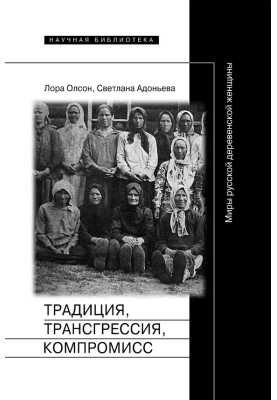Tradition, transgression, compromise
 Instant download
Instant download
after payment (24/7)
 Wide range of formats
Wide range of formats
(for all gadgets)
 Full book
Full book
(including for Apple and Android)
Women of the Russian village were considered victims of the patriarchal way of life and at the same time glorified as models of strength; they were also recognized as an invaluable source that nourished the great Russian culture. But how do they look at themselves? How do their stories and songs speak about their values, desires, and motivations? The interlocutors of the authors of this study in folklore expeditions that took place in Russian villages were women belonging to different Soviet generations: 1899-1916 (before the October Revolution), 1917-1929 (before the start of total collectivization of the village) and 1930-1950 (those whose youth occurred in the post-war period, and the period of social activity in the last Soviet twenty years). The differences in the destinies of women belonging to these three generations are significant, just as their personal experiences and life credos derived from them are different. Updating these differences was the main objective of this monograph. It thematizes the most significant areas of women's knowledge and discourse: themes of courtship and wedding, melodramatic song repertoire and transgressiveness of ditties, magical and religious practices, intergenerational relationships of kinship and property, relationships with the dead. These themes are examined against the backdrop of the dynamics of social hierarchies that determine the lives of generations of Russian villages in the twentieth century.
Data sheet
- Name of the Author
- Лора Олсон
Светлана Адоньева Борисовна - Language
- Russian
- Translator
- А. Зиндер
Reviews
Глибоке дослідження жіночої ідентичності в російському селі
Книга "Традиція, трансгресія, компроміс" є вражаючим дослідженням, яке відкриває нові горизонти розуміння ролі жінок у російському селі протягом ХХ століття. Автори майстерно поєднують фольклорні елементи з соціологічними аспектами, що дозволяє читачеві глибше зрозуміти, як жінки сприймали себе в умовах патріархального суспільства. Особливо вражає, як дослідження трьох різних поколінь жінок розкриває еволюцію їхніх цінностей, бажань та мотивацій. Книга не лише документує їхні історії, але й ставить важливі питання про ідентичність, традиції та трансформації, які відбувалися в суспільстві. Теми залицяння, весіль, магічних практик та міжпоколінченських відносин представлені з великою чутливістю та глибиною, що робить цю монографію надзвичайно цінною для всіх, хто цікавиться культурою та історією Росії. Рекомендую цю книгу не лише науковцям, а й усім, хто прагне зрозуміти складність жіночої долі в контексті соціальних змін.















